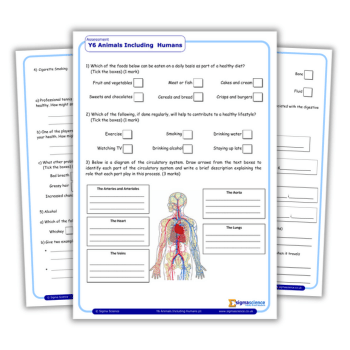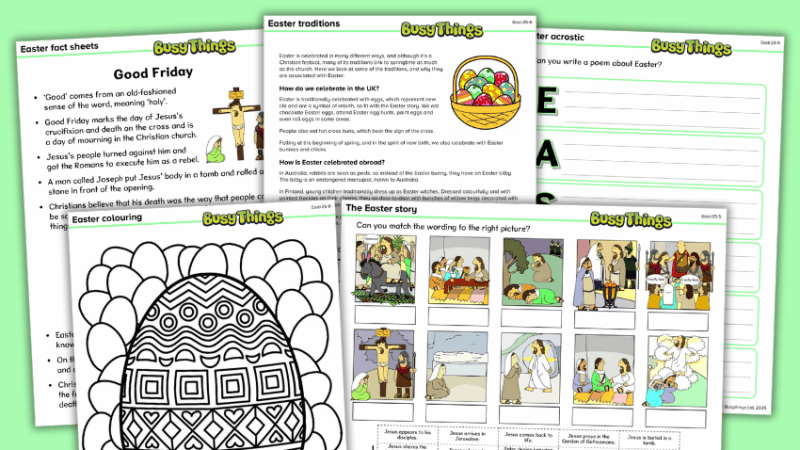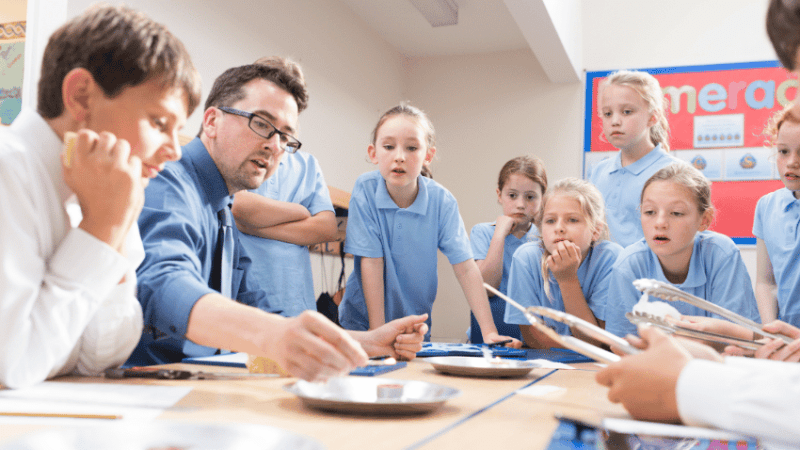Ofsted primary science deep dive – Ensure your curriculum has intent, implementation and impact

Calling all science coordinators – here’s how to ensure your curriculum is top-notch, says Danny Nicholson…

The latest Ofsted buzzword to fill teachers with dread is ‘deep dive’, taken from the Ofsted Inspection Framework. This doesn’t mean that inspectors will be turning up with snorkels and flippers, but it does mean you will need to be prepared for them to take a hard look at some of your subjects.
With the arrival of the new Ofsted inspection framework for primary schools, the focus is now shifting towards whether a school is teaching a broad and engaging curriculum to its children.
Ofsted inspectors will be exploring the intent, implementation and impact of the curriculum in schools. Let’s look more closely at those terms:
Intent: What does the curriculum intend to do? What do you want the children to learn, and what skills do you want them to acquire? Be clear on exactly what these aims are. What do your teachers think is the objective in teaching science?
Implementation: How do you put your curriculum plans into practice, and how do you ensure that your intent is being carried out? How likely is it that the teaching methods used will deliver the teacher’s objectives for each subject?
Impact: What progress do your children make? Have the children learnt what they are supposed to? Have they gained the knowledge and skills that they need? What is the potential impact on the subject teaching on the pupils?
Many schools are using this as an opportunity to take a fresh look at their science programme to ensure it’s as good as it can be and in line with the changes brought in with the revamped 2014 national curriculum. With a little advance preparation, the deep dive shouldn’t be a scary affair.
If you are a science coordinator for your school, here are eight things to consider:
1 | Curriculum coverage and progression
Take a good look at the national curriculum for science and make sure you understand what each year group should be doing. Map out the content of various topics and how they progress from year to year.
For example, focus on a theme such as materials and track how it is taught from Y1 through to Y5. In KS1, children are introduced to the idea of different materials, and the properties that they have.
In Y3 they look at properties relating to rocks and their uses. Later they are introduced to the idea of solids, liquids and gases and the properties of each.
Reversible changes are also introduced at this time, with changes of state as the main example.
Later, chemical changes can be introduced – non-reversible changes such as burning and rusting.
Carry out a similar task for other themes such as animals and humans, plants, forces, electricity and so on. Be clear about the progression in your subject. Can you talk through your curriculum map and highlight the progression of skills and ideas across a year and across key stages?
2 | Scientific vocabulary
Scientific development in children involves the use of a wide and increasingly scientific vocabulary. Ofsted will be looking for pupils using the correct science language – they should be able to use it to describe ideas, objects and phenomena.
Encourage this by using resources like science word mats and having a science vocabulary wall in your classroom. Add definitions to any words used in science displays.
Play vocabulary games but with a science twist. For instance, try to describe a word (‘skeleton’, for example) without using specified words related to it (‘bone’, for instance).
Highlight opportunities in your plans to promote communication, dialogue and reflection. Talk like a scientist yourself in lessons. Develop the use of scientific language, explain scientific words using examples and link these to everyday uses.
Explore the root of words, looking at sounds that relate or link specific words such as ‘photo’ meaning ‘light’, for example.
If you’re looking for inspiration, The Wellcome Trust’s Explorify website (explorify.wellcome.ac.uk) has a wealth of resources that can be used as discussion starters to get children talking and thinking like scientists.
3 | Development of skills and ideas
As well as the science subject content, it’s also important to track how the ‘working scientifically’ skills are taught across each Key Stage.
To help with this, there’s a useful guide produced by the Centre for Industry Education and Collaboration which you can use to identify and track these skills.
Trending
Display them as a set of ‘I can…’ statements to help the children understand what they are expected to be able to do.
Moving from lower to upper primary, children should become increasingly autonomous in their decision-making when carrying out investigations. They should become systematic and accurate in collecting and analysing data and able to evaluate their results.
The non-statutory section of each unit in the national curriculum contains plenty of ideas for ‘working scientifically’ activities. Do your lessons include a ‘working scientifically’ lesson objective, alongside the science content?
4 | Assessment
Take a good look at how you are assessing science learning. How do your teachers know where the children are? A useful resource to help support this is the Teacher Assessment in Primary Science (TAPS) project funded by the Primary Science Teaching Trust.
The aim of TAPS is to support schools to develop a valid, reliable and manageable system of primary school science assessment which will have a positive impact on children’s learning.
The TAPS pyramid tool provides a structure to help schools evaluate and develop their assessment processes. It’s well worth spending some time as a school going through the TAPS self-evaluation process (pstt.org.uk/resources/curriculum-materials/assessment).
5 | Cross-curricular links
Map all the ways your science curriculum links with other subjects. Maths and literacy have obvious links, but there’s plenty of opportunities to link to PE, history, geography, music and more. Highlight these cross-curricular opportunities in your lesson plans.
A good curriculum not only makes links horizontally between different subjects but also vertically within different years of a subject. It should also highlight joint concepts that link diagonally across both year groups and subjects.
6 | Science books
Are the learning objectives being recorded and does the pupil activity relate to these? Can you find evidence in books to show what that progress looked like? As you are teaching, try to ensure that children’s work demonstrates the skills they are learning.
7 | Resourcing
How well resourced is science in your school? Most primary science can be tackled with a cheap and cheerful kitchen-science approach but some areas such as electricity require more specialist kit and for many school’s money is getting increasingly tight.
There are good guides available online (from the PSTT and elsewhere) that give suggested resources for each topic area. How could you cover any gaps? Are there particular big-ticket resources that your PTA could help fundraise for? Perhaps your local secondary could help out with loans of kit?
8 | Action plan
Update your science action plan and return to it regularly. Identify any weaknesses and outline steps that can be taken to address them. Be honest. When Ofsted comes, your headteacher should get some say in the subjects that will be inspected, based on your strengths or areas that have improved. So, if you get the call, good luck!
5 things to think about
- Are you covering all the statutory content of the national curriculum for science in each year group? What about ‘working scientifically’ skills? Are cross-curricular links highlighted?
Danny Nicholson is an educational consultant and blogger at Think Bank Education. He provides support and training for PGCE students and in schools. Find him at sciencefix.co.uk and follow him on Twitter at @dannynic. Read advice for preparing for PE deep dive questions.











